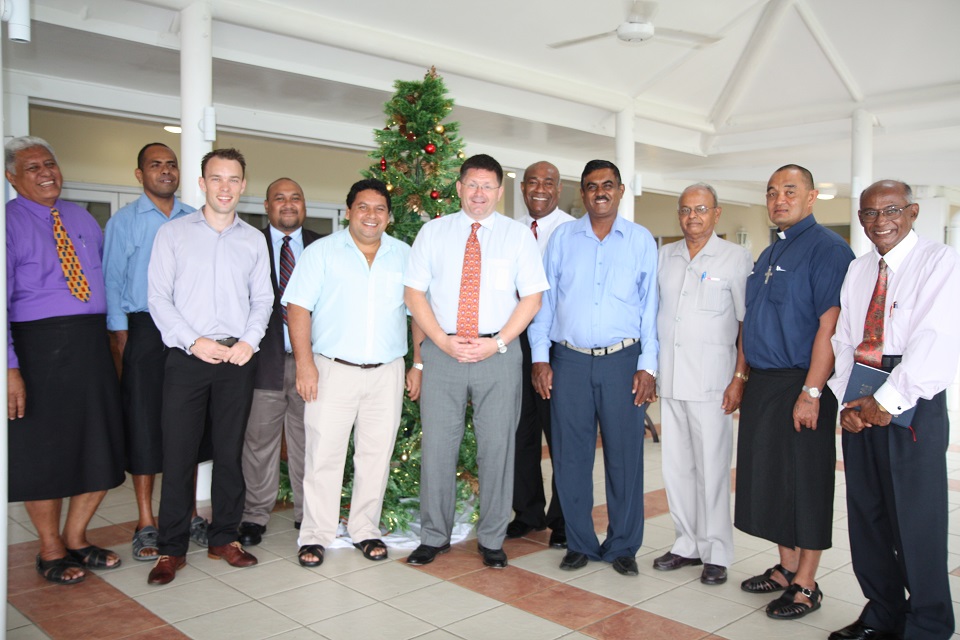High Commissioner's remarks at Interfaith breakfast
To mark Human Rights Day, His Excellency Roderick Drummond hosted an interfaith breakfast in Suva today.

Good morning and a very warm welcome to Gordon House. I’m very glad to meet so many figures from different faiths, all engaged in Interfaith work. I have been interested in such work during my many years in the Middle East - even in Saudi Arabia - which set up an international interfaith centre in Vienna.
As you are no doubt aware tomorrow, 10 December, is Human Rights Day when, each year, we commemorate the adoption by the UN General Assembly – some 65 years ago – of the Universal Declaration of Human Rights – a common standard of achievement for all peoples and all nations.
Human rights are universal, inalienable and indivisible. The UK has worked tirelessly, both domestically and abroad, to defend human rights and to promote dignity and equality for all. It is a cornerstone of our domestic and foreign policy.
So it is with great pleasure that I can announce that the UK has been elected to serve a third two-year term on the UN Human Rights Council, beginning in January. A move that was supported by many partner governments, including the Government of Fiji.
The Human Rights Council has a proud record of addressing the worst atrocities and human rights violations around the world.
Through the Universal Periodic Review process – which we are fully committed to – it has a vital role in scrutinising the human rights records of all countries, including our own. But it also enables countries wanting to improve to seek advice, find solutions and take action.
The UK was a strong advocate for the founding of the Council. And ever since we have been an active participant, serving as a member twice previously. It is a demonstration of our deep and lasting commitment to the promotion and protection of human rights internationally.
Membership of the Human Rights Council is a great responsibility. We will use our membership:
To work for the protection of the most vulnerable in our societies, including minority groups, children and persons with disabilities;
To speak out in favour of freedom of expression, including on the internet – encouraging countries to meet their international obligations and condemning the use of violence to suppress the expression of views;
To combat the use of torture wherever it exists;
To create greater respect for human rights by businesses and commercial organisations;
To tackle violence against women and girls and putting an end to sexual violence in conflict; and
To promote and protect freedom of religion or belief, particularly by working with civil society and religious leaders to increase understanding and acceptance between followers of different faiths and those with none.
It is in this spirit that I welcome you all here today. All societies change. I would reflect that the FCO sent me overseas for the first time in 1987. Since then Britain has changed a huge amount. The biggest change in our society has been that we are now a much more tolerant, open and multi-cultural society. Indeed our multi-culturalism probably now defines us just as much as older British values or traditions.
In 1987 Fiji was also quite a different place from today. And my first impression after 3 months is that Fiji in 2013 is also a remarkably open, tolerant and multicultural society - I am sure that your work on Interfaith has contributed to that, and will continue to do so. Certainly religious faith appears to form a larger part of national life than it does in Britain. And Cross-community harmony is clearly going to be very important as Fiji returns to democracy over this next year, and beyond.
I look forward to a wide-ranging discussion today, and to getting to know you all better in the months and years ahead.
See photos